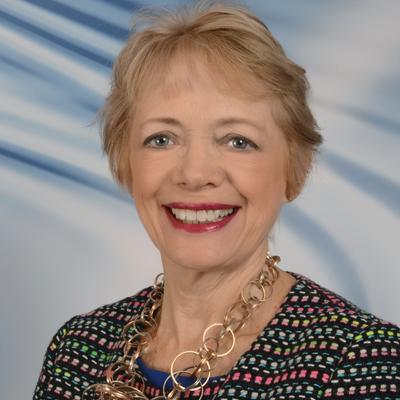- The percentage of women holding FTSE 100 non-executive (NED) positions is at an all-time high of 33%.
- However, the percentage of women holding executive directorships remains low at just under 10% on the FTSE 100 and under 8% of FTSE 250.
- On the FTSE 100, 34% of male non-executive directors hold senior independent director or chair positions compared to only 8% of women non-executive directors. In 2007, 6% of women held senior roles as non-executive directors.
- Report reviews the influence of board evaluations on diversity and recommends clearer guidance and Code of Conduct is drawn up.
This year’s Female FTSE Report, by academics at Cranfield School of Management and Exeter University Business School, sponsored by Aviva and the Government Equalities Office, reveals that while the number of women being appointed to FTSE 100 boards has increased, few women are fulfilling senior roles on those boards.
The percentage of women holding FTSE 100 non-executive (NED) positions is at an all-time high of 33%, but the percentage of women holding executive directorships remains low at just under 10%. This year, six women hold Chair positions and a further 14 hold senior independent directorships on the FTSE 100.
Since June 2016, the percentage of women on FTSE 250 boards has risen from 20.4% to 22.8% and 242 companies have at least one woman on their boards. However, there are still very few women in executive directorships across FTSE 250 boards – 38 in 2017, making 7.7%, less than the 10% on FTSE 100 boards. Women account for just six of the CEO positions on FTSE 100 companies and 10 of the CEO positions on the FTSE 250, as of October 2017.
Cranfield School of Management’s Professor Susan Vinnicombe, CBE, said: “While it is encouraging to see the significant increase in FTSE 100 non-executive director positions held by women over the past ten years, it is dispiriting to see that few of them move into senior roles. Just 8% of women hold senior positions on boards, compared to 34% of male non-executive directors.”
This year’s 2017 Female FTSE Report also reviews the board evaluation industry and their role in promoting gender balance in the boardroom, through a series of in-depth interviews with board evaluators. The Report adds significantly to the evidence base around the importance of diversity on boards and demonstrates the crucial role Chairs play in promoting diversity on boards.
The report makes two recommendations:
- the Financial Reporting Council considers that disclosure in the Annual Report should include information on which type of external evaluation was undertaken, in addition to a summary of actions taken since the evaluation.
- the board evaluation industry adopts minimum standards for reviews, in the form of a Code of Conduct, kitemark or other method by mutual agreement.
Professor Ruth Sealy from University of Exeter Business School who co-authored the report, said: "In our board evaluator study, the more sophisticated behaviourally-focused evaluations were extremely clear about the considerable benefits of a critical mass of diversity affecting boardroom behaviour, culture and effectiveness. They evidence this through the dynamics of better debate and decision-making. Our unique findings should encourage more Chairs to strive for, and more investors to insist on, maximising the benefits of a critical mass of boardroom diversity.”
Writing in the foreword of the Female FTSE Report, Justine Greening, Secretary of State for Education and Minister for Women and Equalities, said: “Cranfield continues to play an important part in the development of a robust evidence base underpinning the women on boards’ targets and analysing key trends, and I would like to thank them for their commitment to this agenda. As Cranfield researchers have found through their interviews with board evaluators, there is a strong case to be made for the positive differences women make to the behaviour, culture and performance of boards.”
Sarah Morris, Chief People Officer at Aviva, who sponsored this year’s Female FTSE Report, said: “Insight drives change. The more we understand the barriers that have held back successive generations of women, the more easily, and quickly, we can overcome them. The insights from Cranfield’s research will help in this journey to promote diversity, unlock the vast amount of female talent and make positive social change.”
Since 1999, the annual Female FTSE benchmarking report has provided a regular measure of the number of women executive directors on the corporate boards of the UK's top 100 companies. This year’s report was sponsored by Aviva.
Notes for editors
About the University of Exeter
The University of Exeter is a Russell Group university that combines world-class research with very high levels of student satisfaction. Exeter has over 21,000 students and is in the top one per cent of universities worldwide. Exeter is also ranked 14th in The Times and The Sunday Times Good University Guide 2018 and 13th in the Guardian University Guide 2018. In the 2014 Research Excellence Framework (REF), the University ranked 16th nationally, with 98% of its research rated as being of international quality, while in 2017, Exeter was awarded a Gold rating in the Teaching Excellence Framework (TEF) assessment. Exeter was named The Times and The Sunday Times Sports University of the Year 2015-16, in recognition of excellence in performance, education and research. Exeter was The Sunday Times University of the Year 2012-13.
The University launched its flagship Living Systems Institute in 2016, a world-class, interdisciplinary research community that will revolutionise the diagnosis and treatment of diseases. This follows recent investments of more than £350 million worth of new facilities across its campuses in recent years; including landmark new student services centres - the Forum in Exeter and The Exchange on the Penryn Campus in Cornwall, together with world-class new facilities for Biosciences, the Business School and the Environment and Sustainability Institute.
About Aviva
- Aviva provides life insurance, general insurance, health insurance and asset management to 33 million customers, across 16 markets worldwide
- In the UK we are the leading insurer serving one in every four households and have strong businesses in selected markets in Europe, Asia and Canada. Our shares are listed on the London Stock Exchange and we are a member of the FTSE100 index.
- Aviva’s asset management business, Aviva Investors, provides asset management services to both Aviva and external clients, and currently manages over £319 billion in assets.
- Aviva helps people save for the future and manage the risks of everyday life; we paid out £34.4 billion in benefits and claims in 2016.
- By serving our customers well, we are building a business which is strong and sustainable, which our people are proud to work for, and which makes a positive contribution to society.
About Cranfield University
Cranfield has been a world leader in management education and research for over 50 years, helping individuals and organisations learn and succeed by transforming knowledge into action. We are dedicated to creating responsible management thinking, improving business performance and inspiring the next generation of business leaders. We work to change the lives of our students and executives by encouraging innovation and creative thinking, as well as the drive to succeed and make a real impact on their organisations.
Organisations as diverse as Jaguar Land Rover, BAE Systems, Royal Dutch Shell, L’Oréal, UNICEF and the African Development Bank have benefited from our work, which ranges from management research projects, through staff talent management development on our MBA courses, to customised executive programmes.
Cranfield is one of an elite group of Schools worldwide to hold the triple accreditation of: AACSB International (the Association to Advance Collegiate Schools of Business), EQUIS (European Quality Improvement System) and AMBA (the Association of MBAs).
We are in the Top 10 International Business Schools in the Forbes’ ranking.
Our open and customised executive education programmes are ranked in the top five in the UK, according to the latest Financial Times survey, and in the top ten in the world for international reach. Over 10,000 people come to Cranfield each year to benefit from our executive and professional development programmes.



